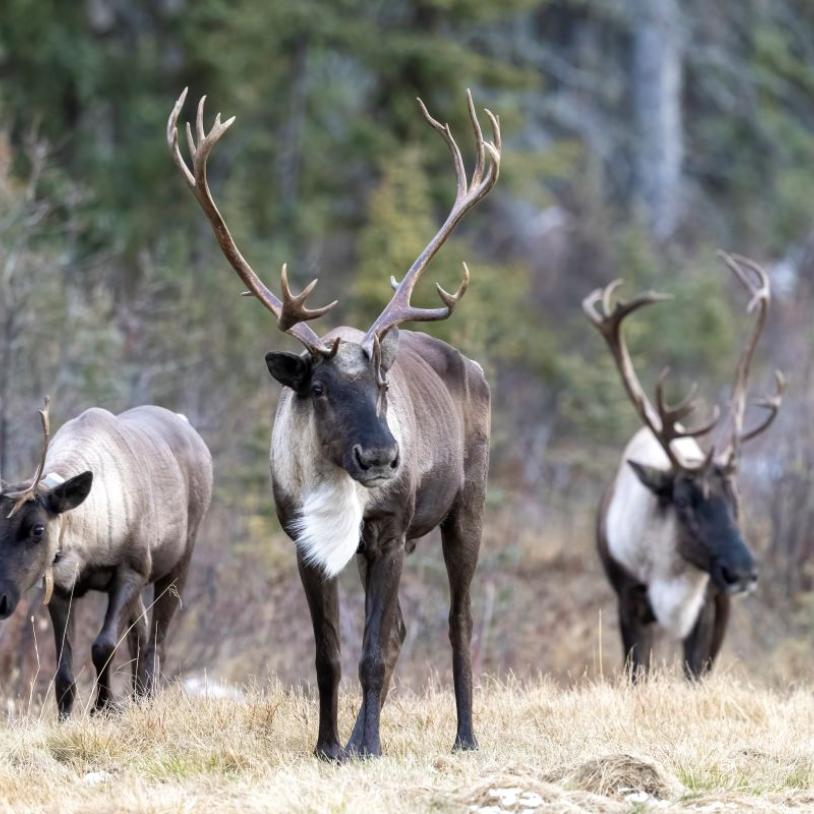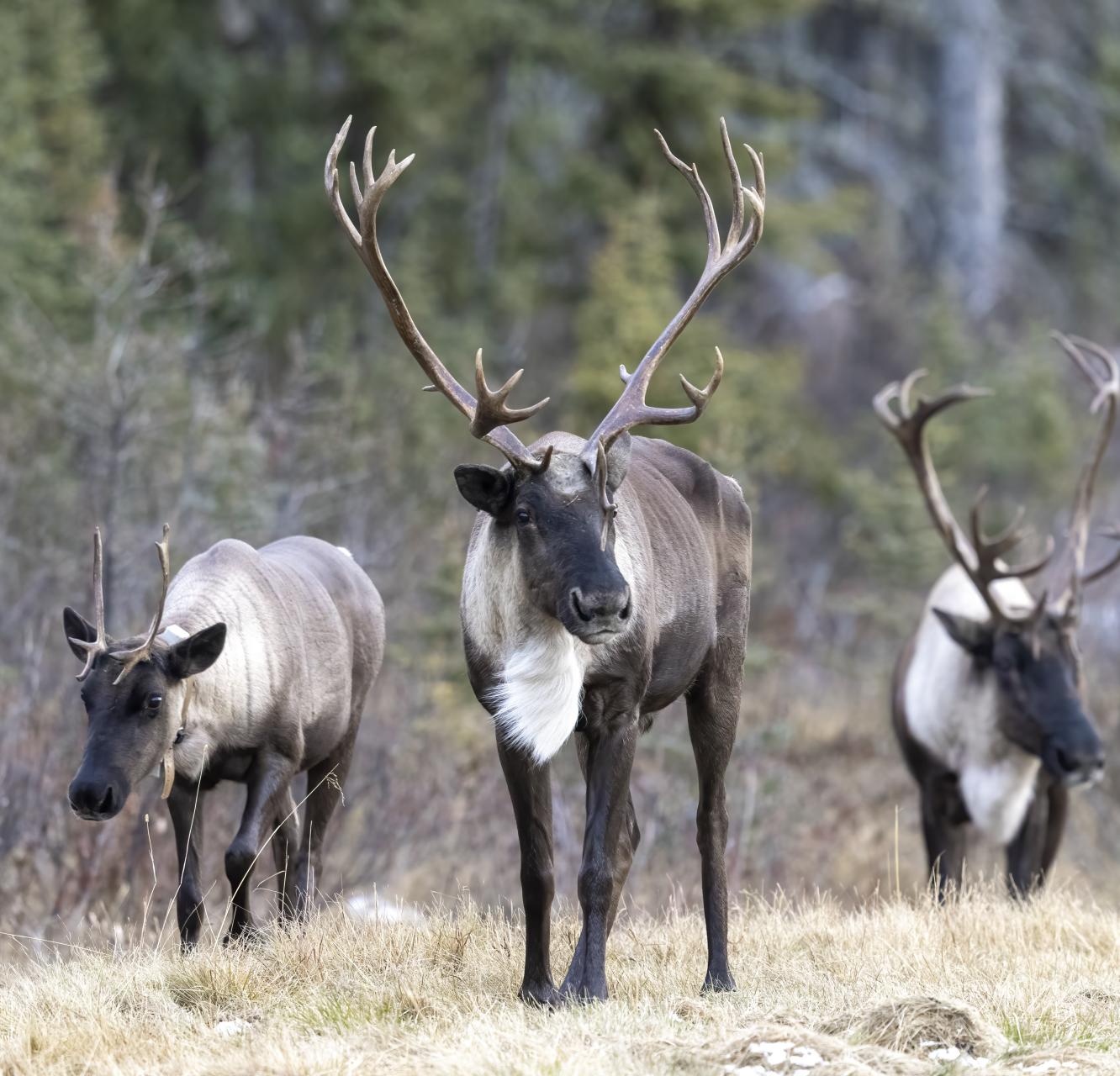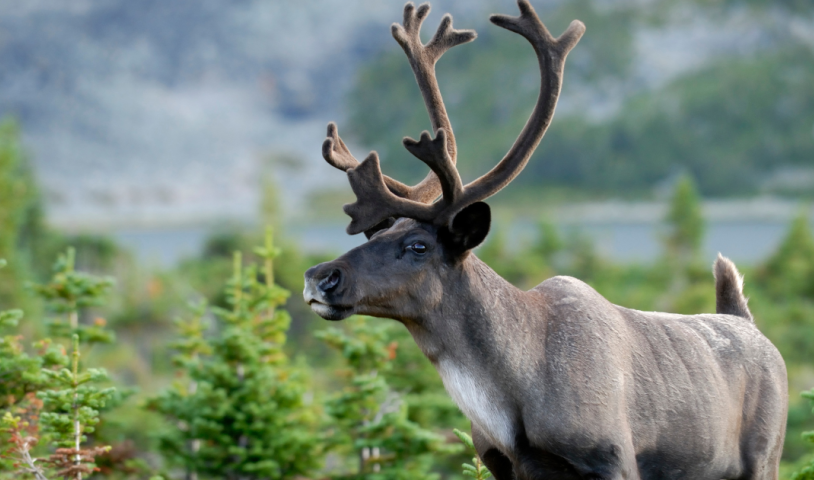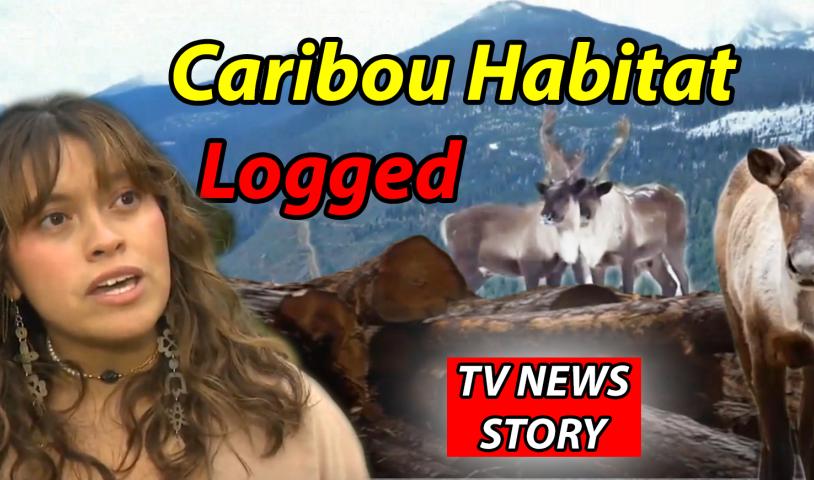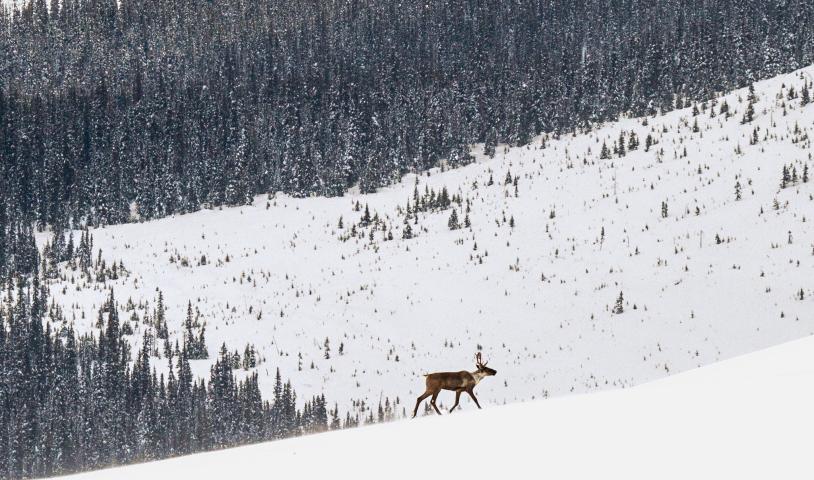Letter to Ministers requesting Moratorium
Thursday, April 26, 2018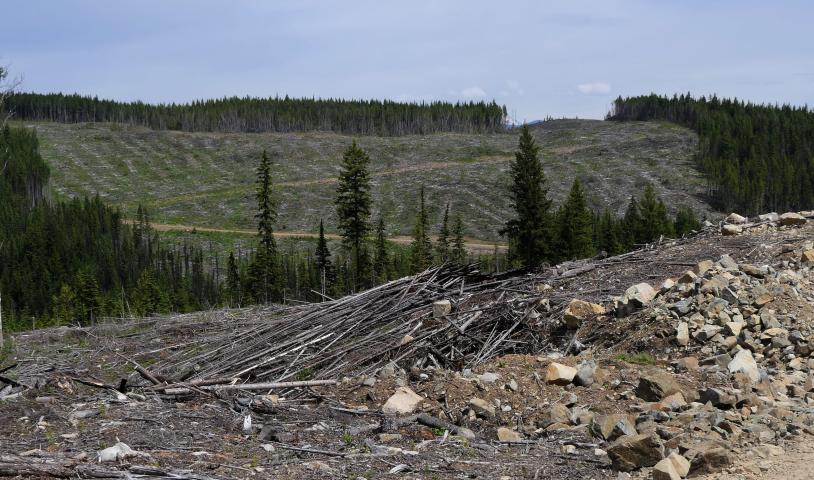
Click here for the original letter with images and signatures.
April 24, 2018
Honourable Catherine McKenna
Minister of Environment and Climate Change
Honourable George Heyman
Minister of Environment and Climate Change Strategy
Honourable Doug Donaldson
Minister of Forests, Lands, Natural Resource Operations & Rural Development
On behalf of: Ancient Forest Alliance, BC Nature (Federation of BC Naturalists), Canadian Parks and Wilderness Society BC Chapter, Conservation North, Conservation Northwest, Greenpeace, Harmony Foundation, Valhalla Wilderness Society, Wilderness Committee, Wildsight, Wolf Awareness, Yellowstone to Yukon Conservation Initiative.
RE: Immediate Moratorium on Destruction of Caribou Habitat in B.C.
Dear Minister McKenna, Minister Heyman and Minister Donaldson:
While we continue to work in good faith with your officials, we are deeply concerned and frustrated by the glacial pace of action to protect caribou habitat in B.C. As a result, we feel compelled to request immediate action from your governments. We request an immediate moratorium on activities that cause further degradation and disturbance of habitat in caribou ranges, or that displace caribou from critical habitat. This includes, but is not limited to, logging, mining, oil and gas activities, badly placed wind farms, and threats from recreational activities such as ATVs, snowmobiles, and heli-skiing.
After decades of caribou population decline and the clear failure of both jurisdictions to implement effective recovery actions, the time to act is now. We now have witnessed the continued decline of the South Selkirk herd down to three individuals, rendering them functionally extinct. This is a tragedy and a black eye for B.C. and Canada. Moreover it is a clear warning signal that caribou in B.C. are on the brink. Caribou can only recover if sufficient habitat of adequate quality is protected to support self-sustaining populations.
The science is clear. The continued disturbance and loss of critical habitat has had a devastating effect on caribou populations across B.C., which are greatly diminished and continue to decline as ranges are increasingly fragmented and herds are isolated. Some populations, such as the Burnt Pine and now (functionally) the South Selkirk, have been extirpated. This has also had significant negative impacts on the rights, cultures and traditional livelihoods of First Nations in B.C., and is a violation of Treaty 8 in northeast B.C.
Both B.C. and Canada have long had sufficient information needed to take effective recovery action. And yet, since release of the 2014 Mountain Caribou Recovery Strategy, both governments have failed to put sufficient protection on caribou habitat, the most obvious need for recovery. As the situation worsens, it has become even more of an emergency. Action must be taken immediately, before we lose more habitat and as a result, more caribou herds.
The 2017 joint B.C.-Canada Critical Habitat Protection Assessment under section 64 of SARA found that thresholds of disturbance have been exceeded for both low and high elevation habitat for caribou herds of the Central Group, and this is undoubtedly the case throughout B.C. This clearly illustrates the ineffectiveness of the current approach. B.C. has failed to protect sufficient critical habitat to even maintain caribou, never mind recover them. Canada has failed in its responsibility under the federal Species at Risk Act to intervene when provincial recovery measures are insufficient. Under SARA section 80, “the competent minister must make the recommendation if he or she is of the opinion that the species faces imminent threats to its survival or recovery.” Surely, the functional extinction of the South Selkirk herd, and the drop of the entire population of Southern Mountain Caribou from 4500 in 2017 to 3800 in 2018 (affidavit of Blair Hammond, Canadian Wildlife Service) is a sufficient signal that the species faces imminent threats to its survival and recovery. Under the circumstances, we must ask why the federal SARA emergency order has not yet been used. Three emergency order requests have already been filed, all without a reply. The incredibly slow time scale at which the federal government is working does not work for caribou. We need answers and we need action.
We reiterate our request for an immediate moratorium on activities that cause further degradation and disturbance of habitat in caribou ranges, or that displace caribou from critical habitat. This includes, but is not limited to, logging, mining, oil and gas activities, wind farms, and threats from recreation.
Although B.C. was required to have an action plan for boreal caribou in place by October 2017, this deadline was missed. B.C. has recently announced that more time is needed for further recovery planning for herds across the province. A moratorium on activities within all caribou ranges will allow the government time to more effectively create plans and engage stakeholders, and also will ensure that we do not lose more caribou habitat in the meantime.
We expect recovery planning to be done in partnership with First Nations. You can count on continued input from our groups and members to ensure effective plans are implemented.
If B.C. fails to put an immediate moratorium on activities that degrade caribou habitat and displace caribou herds we ask Minister McKenna to fulfill her duty to use the powers under section 61(4) of SARA to immediately protect from loss or degradation all critical habitat identified in the 2014 Federal Recovery Strategy and in any other known or updated critical habitat mapping based on best available information, as is in her power.
This order should remain in place as the federal government works with B.C. and First Nations to implement on the ground action plans that include permanent protection of critical habitat—including core habitat and federally identified class 1 matrix habitat—and large landscape habitat protection throughout core caribou range.
All of BC’s caribou demand urgent action. Mountain caribou live nowhere else on the planet, and we welcome the leadership of First Nations, Canada, and B.C. in ensuring these magnificent animals thrive for future generations.
We look forward to your earliest response. Thank you.
Sincerely,
Candace Batycki BC & Yukon Program Director Yellowstone to Yukon Conservation Initiative
John Bergenske Conservation Director Wildsight
Michael Bloomfield Founder and Executive Director Harmony Foundation
Alan E. Burger, PhD President BC Nature (Federation of BC Naturalists)
Michelle Connolly Conservation North
Jessie Corey Terrestrial Conservation Manager Canadian Parks and Wilderness Society, BC Chapter
Charlotte Dawe Conservation and Policy Campaigner Wilderness Committee
Joe Foy National Campaign Director Wilderness Committee
Andrea Inness Environmental Campaigner Ancient Forest Alliance
Sadie Parr Executive Director Wolf Awareness
Anne Sherrod Chairperson Valhalla Wilderness Society
Eduardo Sousa Senior Forest Campaigner Greenpeace Canada
Joe Scott International Programs Director Conservation Northwest
